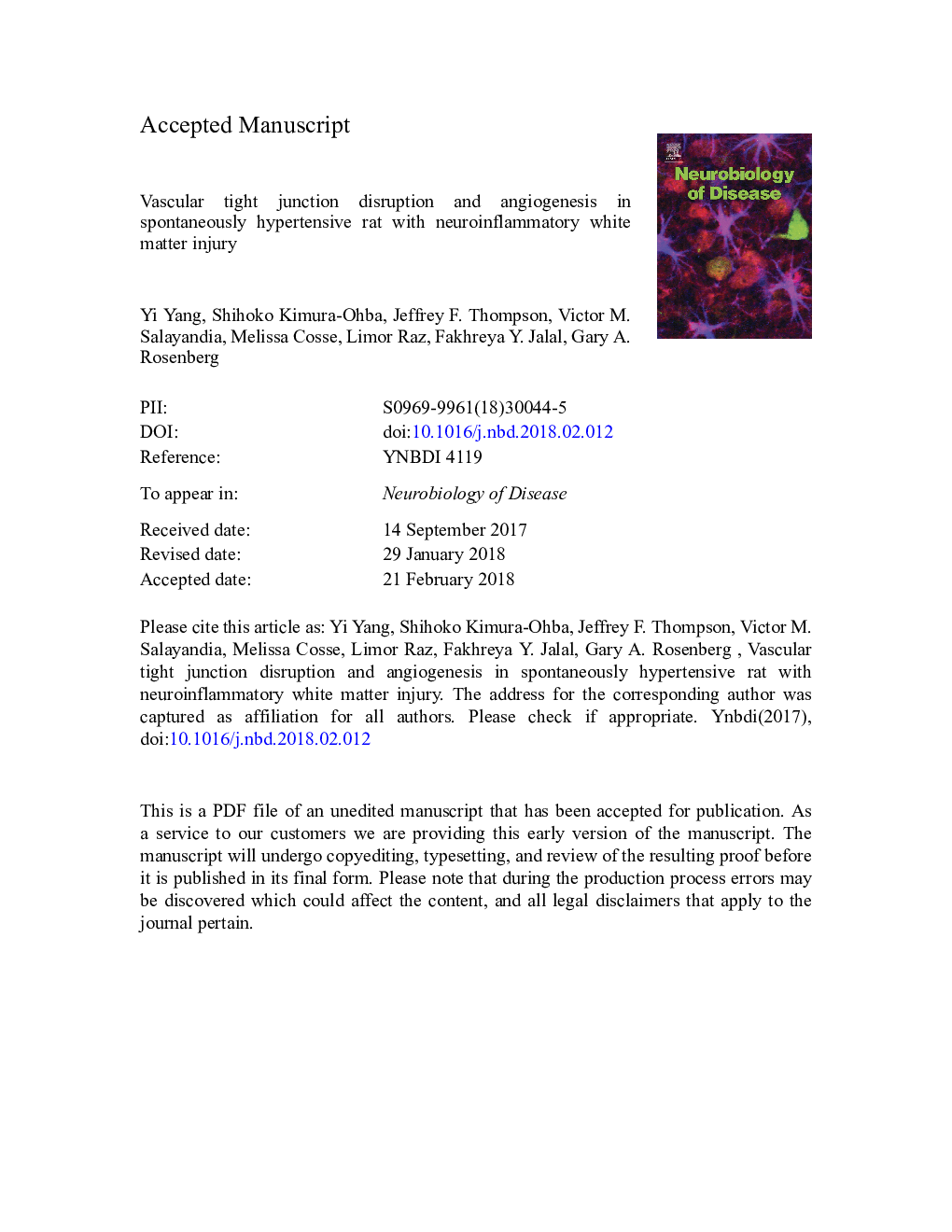| کد مقاله | کد نشریه | سال انتشار | مقاله انگلیسی | نسخه تمام متن |
|---|---|---|---|---|
| 8686388 | 1580606 | 2018 | 59 صفحه PDF | دانلود رایگان |
عنوان انگلیسی مقاله ISI
Vascular tight junction disruption and angiogenesis in spontaneously hypertensive rat with neuroinflammatory white matter injury
ترجمه فارسی عنوان
اختلال در اتصال تنگی عروق و آنژیوژنز در موشهای خودبخود فشار خون بالا با آسیب عصبی مغزی نخاعی
دانلود مقاله + سفارش ترجمه
دانلود مقاله ISI انگلیسی
رایگان برای ایرانیان
کلمات کلیدی
موضوعات مرتبط
علوم زیستی و بیوفناوری
علم عصب شناسی
عصب شناسی
چکیده انگلیسی
Vascular cognitive impairment is a major cause of dementia caused by chronic hypoxia, producing progressive damage to white matter (WM) secondary to blood-brain barrier (BBB) opening and vascular dysfunction. Tight junction proteins (TJPs), which maintain BBB integrity, are lost in acute ischemia. Although angiogenesis is critical for neurovascular remodeling, less is known about its role in chronic hypoxia. To study the impact of TJP degradation and angiogenesis during pathological progression of WM damage, we used the spontaneously hypertensive/stroke prone rats with unilateral carotid artery occlusion and Japanese permissive diet to model WM damage. MRI and IgG immunostaining showed regions with BBB damage, which corresponded with decreased endothelial TJPs, claudin-5, occludin, and ZO-1. Affected WM had increased expression of angiogenic factors, Ki67, NG2, VEGF-A, and MMP-3 in vascular endothelial cells and pericytes. To facilitate the study of angiogenesis, we treated rats with minocycline to block BBB disruption, reduce WM lesion size, and extend survival. Minocycline-treated rats showed increased VEGF-A protein, TJP formation, and oligodendrocyte proliferation. We propose that chronic hypoxia disrupts TJPs, increasing vascular permeability, and initiating angiogenesis in WM. Minocycline facilitated WM repair by reducing BBB damage and enhancing expression of TJPs and angiogenesis, ultimately preserving oligodendrocytes.
ناشر
Database: Elsevier - ScienceDirect (ساینس دایرکت)
Journal: Neurobiology of Disease - Volume 114, June 2018, Pages 95-110
Journal: Neurobiology of Disease - Volume 114, June 2018, Pages 95-110
نویسندگان
Yi Yang, Shihoko Kimura-Ohba, Jeffrey F. Thompson, Victor M. Salayandia, Melissa Cossé, Limor Raz, Fakhreya Y. Jalal, Gary A. Rosenberg,
